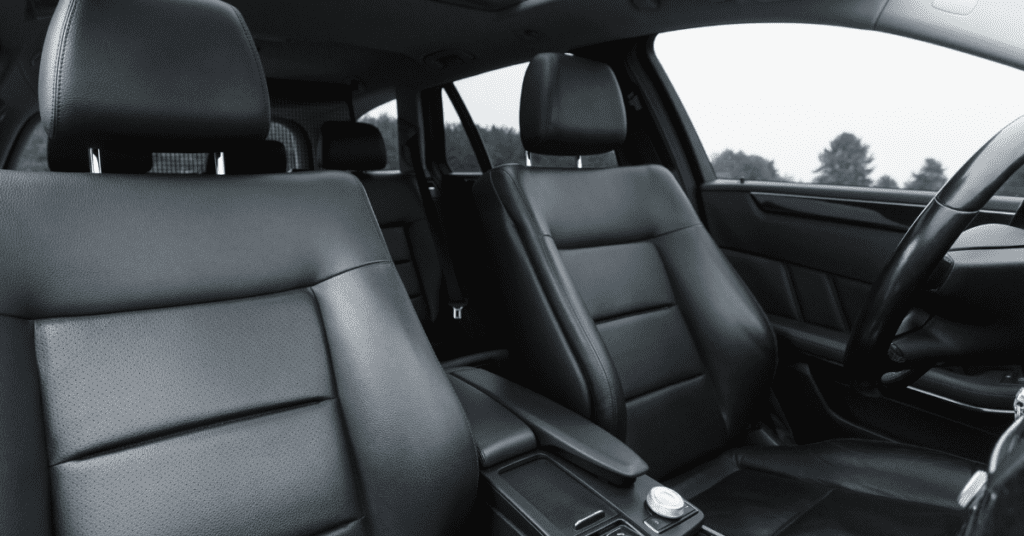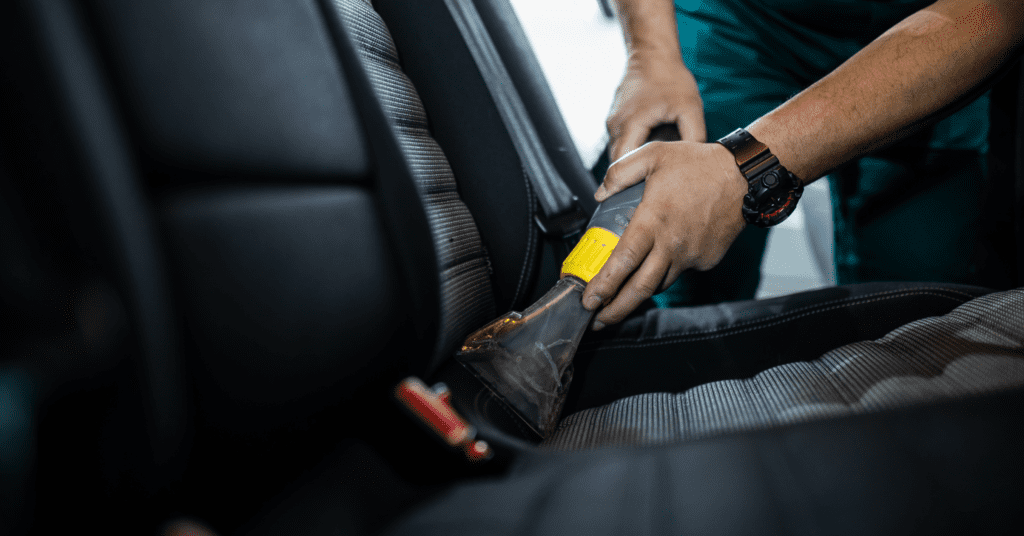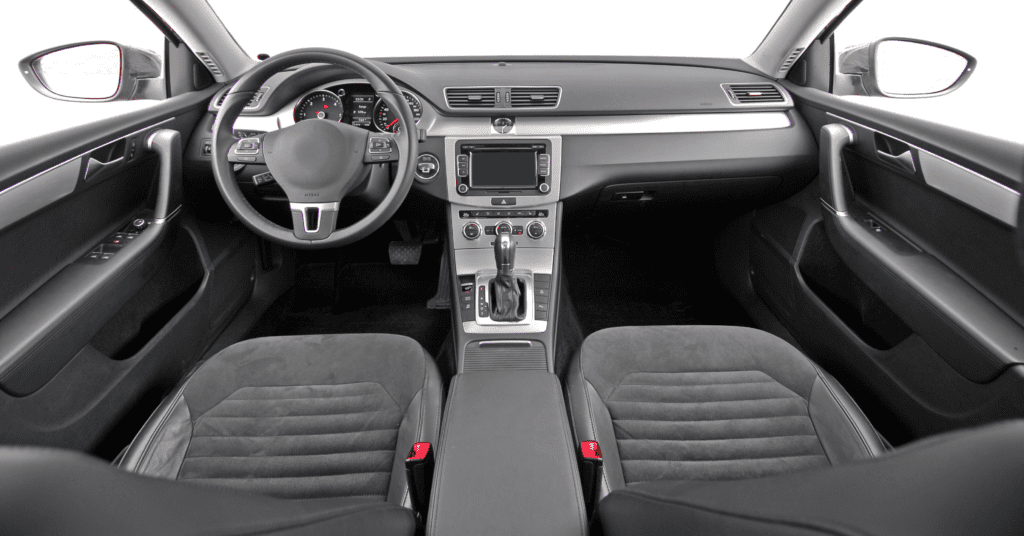Rodent-Proofing Your Vehicle: Preventing Damage and Infestations


You’ve ticked off all items on your vehicle maintenance checklist. However, rodents making a home in your car isn’t on that list, is it? Scary but true, mice, rats, and other rodents can cause damage to your vehicle (not to mention the health risks). In this guide, we’ll explore preventing rodents in cars, spotting signs of a mouse infestation, and how to keep rodents out of your car effectively.
Common Signs of Rodent Infestation in a Vehicle
Common signs of a rodent infestation in a vehicle can be quite alarming, as these small creatures can cause significant damage. One of the most obvious indicators is the presence of droppings or nesting materials such as shredded paper, fabric, or leaves, often found under the seats or in hidden corners. Another tell-tale sign is the distinctive odor of rodent urine, which can be quite strong and unpleasant. Chew marks on wires, upholstery, or plastic components are also a clear indication, as rodents have a tendency to gnaw on various materials to keep their teeth sharp. Strange noises, such as scratching or scurrying sounds, particularly when the car is stationary, can suggest the presence of these pests. Lastly, if you notice erratic or unexplained electrical problems, it could be due to rodents chewing through wiring, which can lead to shorts and malfunctions in your vehicle’s electrical system. Regular inspection and prompt attention to these signs are essential to avoid extensive damage and costly repairs.
Effective Methods for Rodent-Proofing

Keeping rodents out of your car requires a combination of proactive and preventative measures. Firstly, parking in a clean, dry area can significantly reduce the likelihood of rodent infestation, as rodents are often attracted to damp, cluttered environments. Regularly cleaning your vehicle, both inside and out, and removing any food scraps or wrappers can also deter these pests, as they are often drawn to food sources. While discussing the importance of keeping your vehicle clean to deter rodents, a related question arises: Do Rats Go Into Clean Houses? Finally, regularly inspecting your vehicle for signs of rodent activity and addressing any issues promptly can help ensure that these pests do not make your car their home.
Natural Methods for Rodent-Proofing


For those who prefer DIY solutions, there are several natural methods that can effectively deter rodents from invading your vehicle. One such method involves the use of essential oils. Soaking cotton balls in peppermint, mint, or cinnamon essential oil and then placing them strategically in various areas of the car can help repel rodents, as they dislike these scents. Additionally, the use of spices and plant materials can be a practical approach. Sprinkling cayenne pepper around your car, or laying down cedar shavings in areas where rodents might enter, can act as a natural deterrent. Beyond these scent-based methods, creating physical barriers is also essential. This involves sealing any small openings or gaps in your car where rodents could potentially sneak in. Pay particular attention to the vehicle’s undercarriage or engine bay for any breaches that need repairing. Furthermore, lighting up the parking area can be beneficial, as rodents typically prefer dark, undisturbed spaces. By combining these natural strategies, you can effectively rodent-proof your car in a safe and environmentally friendly way. While discussing natural methods for rodent-proofing, such as using peppermint oil, it’s also important to explore other Natural Rodent Control Methods, including alternatives like cat litter.
What to Do if Rodent Infestation is Suspected or Confirmed
If you’ve already encountered signs of infestation, you might be wondering about the Fastest Way to Get Rid of Rodents to prevent further damage to your vehicle. The first step is to seek a professional inspection. Trained pest control professionals can accurately assess the severity of the infestation and any potential damage inflicted by the rodents. With their expertise, they can provide a comprehensive evaluation and recommend the best course of action. In cases of severe infestation, the dilemma often faced is whether to attempt DIY methods or to Get Rid of Rats by Calling Pest Control. Once an infestation is confirmed, it is advisable to opt for specialized rodent treatment services. These services typically include setting up traps, applying rodenticides, and safely removing any carcasses. This approach ensures that the infestation is dealt with effectively and hygienically. Upon confirming an infestation, many car owners question How Long Does It Take To Get Rid of a Rodent Infestation, especially when considering the severity of damage rodents can cause.”
Conclusion


Nobody wants uninvited guests, especially not rodents in their car. They pose a risk to both your vehicle’s functioning and your health. While rodent invasion in cars is a common issue, following the strategies outlined above can help keep your vehicle rodent-free. Prevention is undoubtedly the best way to minimize rodent access, but if you suspect an infestation, call a pest control professional promptly to prevent further damage and infestation. Just as it’s vital to rodent-proof your vehicle, it’s equally important to consider Rodent-Proofing Your Home to provide a comprehensive defense against these pests.
In conclusion, while the steps outlined in this guide will greatly assist in keeping your vehicle free from rodent infestations, sometimes professional help is needed to effectively tackle these persistent pests. For those in need of expert pest control services, we have dedicated teams ready to assist in various locations. Whether you’re looking for West Vancouver Pest Control, North Vancouver Pest Control, Vancouver Pest Control, Burnaby & New West Pest Control, Coquitlam & Tri-Cities Pest Control, and Richmond Pest Control, our skilled pest control specialists are just a call away. Don’t let rodents take over your vehicle or your peace of mind. Contact us today for top-notch pest control solutions tailored to your area’s specific needs.
